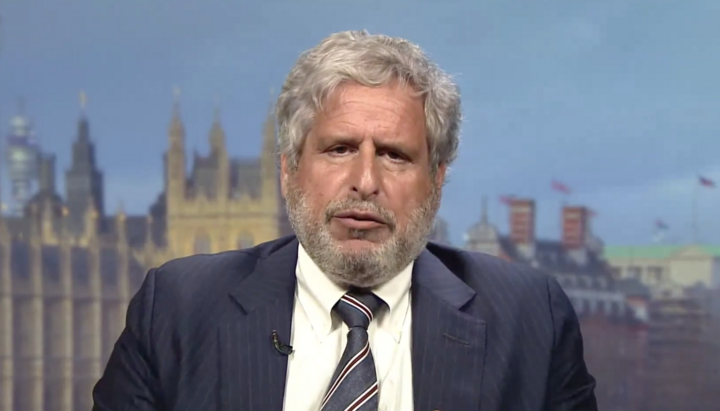How Do the Archbishops Afford Robert Amsterdam Amid Armenia's Everyday Hardships?

In a nation where ordinary citizens battle daily with severe infrastructure failures—ranging from acute water shortages to precarious food security—questions abound about how two arrested Armenian archbishops, Bagrat Galstanyan and Mikayel Ajapahyan, have managed to enlist the services of Robert Amsterdam, a high-profile international lawyer from Canada and the United States. With clerical wages typically modest and insufficient for such elite legal representation, the funding sources point to broader institutional and diaspora support. Adding layers of complexity, defending these church figures is fraught with challenges, particularly when allegations touching on celibacy vows and personal conduct complicate their portrayal as wholly dedicated religious leaders.
Armenia's Ongoing Struggles: Water, Food, and Infrastructure in Crisis
Armenia's population endures significant hardships rooted in infrastructural deficiencies. The country faces extreme water stress, driven by overuse, inefficient irrigation, and climate-induced changes like erratic precipitation and reduced crop yields. These issues exacerbate food insecurity, with geopolitical tensions, border disputes, and post-pandemic recovery further straining access to essentials.
Efforts to mitigate these problems include international aid, such as the World Food Programme's community training on sustainable water use and the World Bank's June 2025 funding for improved water access. Yet, for many Armenians, these challenges remain a harsh reality, underscoring the disparity between everyday survival and the resources mobilized for prominent figures.
The Archbishops at the Center of Controversy
Archbishop Bagrat Galstanyan, leader of the opposition "Tavush for the Homeland" movement, was detained on June 25, 2025, on charges of orchestrating a coup and inciting violence against Prime Minister Nikol Pashinyan's government. Born in Armenia but formerly a bishop in Canada, Galstanyan denies the allegations, framing them as political persecution.
Similarly, Mikayel Ajapahyan, Primate of the Shirak Diocese, was arrested on June 27, 2025, following a tense standoff at the church's headquarters in Holy Etchmiadzin. He faces charges of calling for the usurpation of power, with his case now in court. Both arrests highlight escalating tensions between the Armenian Apostolic Church and the state, with the church accusing the government of suppressing religious and political dissent.
Who Is Robert Amsterdam? A Profile of the International Lawyer
Robert Amsterdam stands out as a formidable advocate in global legal battles. A Canadian-American attorney with more than 40 years of experience, he specializes in human rights, political risk, and disputes in emerging markets. As founding partner of Amsterdam & Partners LLP in London and Washington, D.C., he has represented clients like Russian dissident Mikhail Khodorkovsky and Venezuelan opposition figures.
Educated at Carleton University and the University of Toronto, Amsterdam has authored works on political risk and often engages in public advocacy. His fees, though undisclosed, cater to affluent clients, governments, or institutions, occasionally including pro bono work for human rights causes.
In Armenia, Amsterdam arrived in Yerevan on August 12, 2025, to defend the church amid the archbishops' detentions, emphasizing threats to religious freedom. He also represents businessman Samvel Karapetyan, a church ally whose arrest was deemed unlawful. His efforts have garnered international support, including from Canadian MP Garnett Genuis.
Unpacking the Funding: Beyond Clerical Salaries
Given the humble salaries of Armenian clergy—often aligned with state aid and donations—personal financing of Amsterdam's services seems implausible. Instead, the Armenian Apostolic Church likely draws from collective resources, including global diaspora contributions and patronage from wealthy supporters like Karapetyan, whose billionaire status and church connections suggest he may be facilitating the costs.
This arrangement, while enabling robust defense, amplifies perceptions of inequality in a country plagued by shortages, prompting debates on external influences in domestic affairs.
Defense Dilemmas: Celibacy Allegations and Church Holiness
Protecting Galstanyan and Ajapahyan is hindered by the church's strict celibacy rules for archbishops, which require a life of holiness unmarred by sexual relations. While core accusations are political, side allegations erode their standing. Prime Minister Pashinyan has claimed Catholicos Karekin II violated vows by fathering a child—a charge refuted by the church. For Galstanyan, unconfirmed reports from his Canadian tenure in 2013 allude to sexual assault issues in the diocese, though unsubstantiated.
Such claims, potentially weaponized politically, make it arduous to defend the archbishops as exemplars of purity, shifting narratives and challenging public sympathy.
Looking Ahead: Implications for Armenia
The archbishops' ability to afford Amsterdam's expertise amid national hardships reveals the church's networked strength but also fuels scrutiny over equity and influence. As Armenia contends with its crises, this saga tests the boundaries of faith, politics, and justice, potentially reshaping the nation's path forward.
